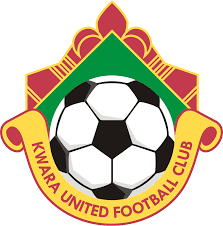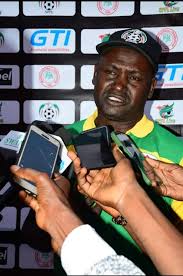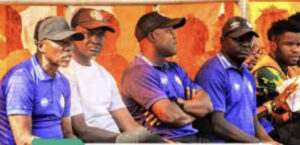As Kwara United Football Club navigates the challenges of the 2023/24 NPFL first leg, debates swirl around the sources of the team’s struggles—whether they stem from the chairman, technical crew, or players.
Following a crucial meeting between players and the chairman, a commitment to non-interference in technical matters was secured. Subsequently, Tunde Sanni, hailing from Heartland Owerri, assumed the role of chief coach.
Under coach Kabir Dogo, the technical adviser and the new appointed chief Coach, Coach Tunde Sanni, Kwara United secured a victory and a draw in two games, placing twelfth in the standings. However, this success was tempered by overt player drops, with some already obtaining clearances for other clubs.
Recent days have witnessed the arrival of new players, prompting concerns about their proficiency compared to retained and dropped players. Starting with goalkeepers, questions arise about the capability of the newly acquired goalkeeper from Benin to surpass established figures like Yinka and Saliu.
In the defensive realm, the absence of a replacement for the talented indigenous player, Muri Dagbo, prompts questions about the decision-making process. The midfield, fortified by the return of Alao Muhammed and Nasir Afeez, along with the presence of Omaka Anthony and Shola AbdulRahman, still calls for the setting of high standards for existing talented midfielders.
Surprise surrounds the lack of a superior replacement for dropped players in the attacking line. The new strikers are deemed not better than the likes of Samuel, Emmanuel, and Adelani. However, the potential addition of Wasiu Alalade to the team is met with approval.
The opinion pivots towards the belief that bringing the creme De la creme footballer or nurturing existing talents and setting rigorous standards would be more beneficial than signing unproven players for the crucial second leg. The suggestion extends to exploring known players from Ilorin for empowerment rather than negotiating with potentially unworthy players.
A critical view is taken on the pursuit of players solely for financial interests, contrasting it with the success observed when players excelled in their respective teams without hefty financial inducements.
In conclusion, a collective responsibility for the team’s success is emphasized, urging against discouraging the present government’s positive contributions. The overarching message is that the team’s failure would be a shared responsibility, emphasizing the need for strategic decisions and a focus on homegrown talent.
A direct plea is made to stakeholders to speak up before it becomes too late or the blame game ensues, targeting either the chairman or the technical crew. The urgency in this call is a plea for proactive engagement and transparent communication to steer Kwara United towards a successful path.
✍️Opadele Abdulkabeer





